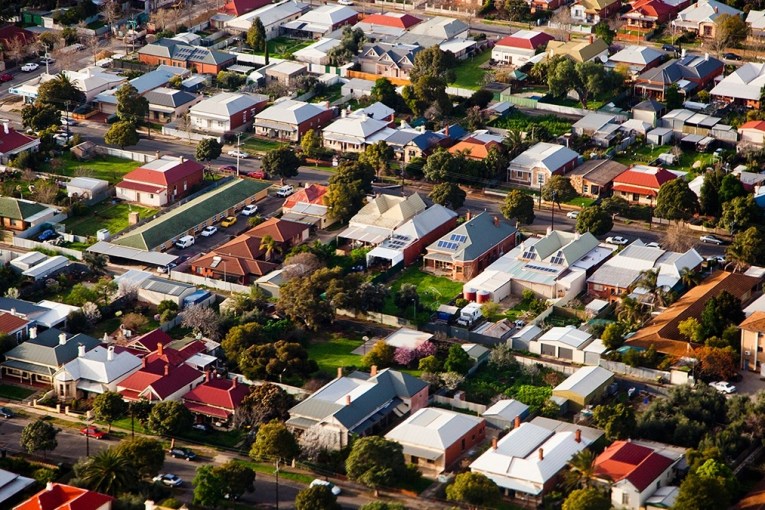Do property-owning MPs have a conflict of interest when setting housing policy?

As more Australians are forced into homelessness by low rental vacancies and soaring prices, it could be argued that a Parliament full of property investors has a “conflict of interest” when setting housing policy.
Prime Minister Anthony Albanese owns three properties and the Opposition Leader Peter Dutton owns five, for example, and two in three Australians believe federal Parliament isn’t doing enough to solve the housing crisis.
When 510 properties around Australia are owned by 227 federal parliamentarians, an average of 2.25 properties per MP, can Parliament faithfully regulate a property market it financially benefits from?
Dr Laurence Troy, director of the University of Sydney’s Australian Housing and Urban Research Institute, said the government can influence the state of the housing market because it effectively creates it through regulation, settings and policies.
“The whole idea that markets exist as some independent, abstract thing is a kind of fallacy to begin with, as government settings and policies affect and establish the basis upon which markets operate,” he said.
“The tax settings around speculative ownership of property is a key dimension here that we should be talking about, including the regulatory settings around banking and finance more broadly that affects the volumes of capital flowing into the property market.”
Home ownership falling
In 1995, 71 per cent of Australian households owned their home. In the most recent Census, it had dropped to 66 per cent.
Outright home ownership, where households don’t have a mortgage on a property, has fallen from 42.8 per cent in 1995-96 to 31 per cent in 2021.
Dr Troy said during this time, Australia moved away from seeing the production of housing as primarily for meeting the basic need of shelter and instead produced housing to meet investor demand.
“The whole market is structured around the wants and demands of investors, which is working against meeting the housing needs of a large part of the population,” he said.
“We have to return to the central purpose of what this housing is for, and that’s for the people who live in them and has to be the reason we build new properties.”
Over the past 25 years, the median house value in Australia has increased by 412 per cent and loan sizes have increased by 376 per cent.
Dr Troy said the current speculative approach to housing is detrimental to the wider economy because investment is going into existing housing stock, instead of driving the development of new dwellings.
“It’s actually inhibiting a lot of people from participating in other dimensions of our economy, as we see now by the cost-of-living issues for renters and new home owners,” he said.
“They are not going off and purchasing in the real economy and driving other forms of growth, so it works against other ambitions in government around economic growth.”
A parliament of landlords
Only 15 per cent of Australians own an investment property, compared to 44 per cent of parliamentarians.
Dr Troy said having Parliament full of multiple property owners creates “a conflict of interest in that they own properties and have been tasked with making regulation around the treatment of those properties”.
“Whether they are actively working against changing regulations around the tax treatment of multiple properties, I’m not sure,” he said.
“The bigger point is they perhaps don’t understand the urgency around addressing it because I think you don’t really understand the deep inequality unless you are locked into the rental market for long periods of time.”
Growing inequality
That “deep inequality” is now forcing more Australians out of their homes than ever, with a new report from Homelessness Australia finding more than 1600 people are becoming homeless each month because of low rental vacancies and soaring prices.
Homelessness Australia CEO Kate Colvin said in a statement that while the federal government has recently committed new resources for social housing, the housing crisis continues to drive increased demand for services.
“A significant funding boost is needed to cope with this unprecedented surge in demand,” she said.
“Australia has the means to end homelessness. We just need the will.”

At least 1600 Australians are being forced into homelessness each month, according to a new report. Photo: Getty
There are 144 parliamentarians who own more than one property, and more MPs own three or more properties (84) than just one (83).
Dr Troy said making housing more equitable will be difficult because “free-market purists would say the housing market is completely functional, even operating as it is and producing social inequality”.
“Some in Parliament would argue they aren’t conflicted because this is the model of society they promote, which produces unequal outcomes,” he said.
“These conversations have been going on for a number of years, but they never go very far because policy has been dominated by the free market thinking, including within the bureaucratic apparatus of government.”








